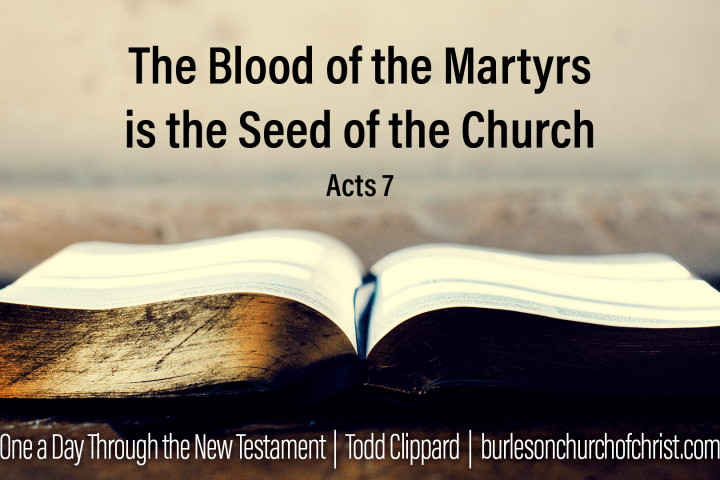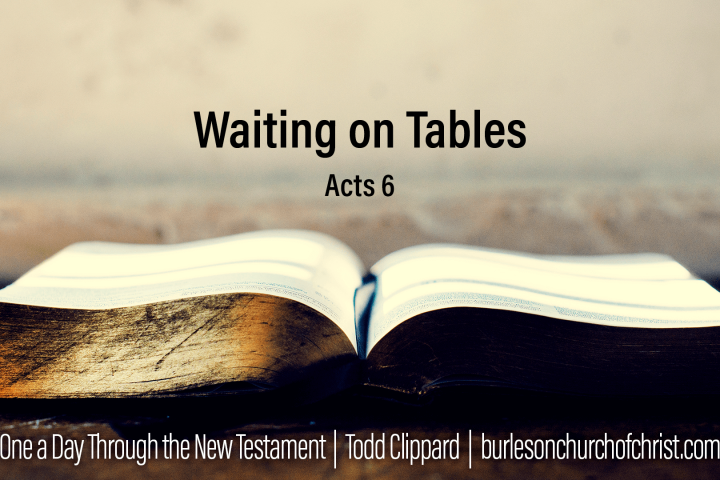Acts 14: He had faith to be healed
Perhaps the most heartless and unbiblical fraud perpetrated by so-called faith healers is the claim that, after they fail, the subject of their intent had insufficient faith to be healed. Never mind that the individual made a special trip, made a specific request, and exhibited a genuine belief in the so-called man of God to provide healing. Nope. It was all the fault of the sick or disabled person. Without question or fail, these failed healers will point to an…
Acts 13: With great power comes great responsibility
This is perhaps the most famous line from Stan Lee’s Spiderman, spoken by Uncle Ben. It is attributed originally to Voltaire in the 18th century. (One might say Jesus said it first in Luke 12:47-48). Acts 13 records the inaugural missionary journey of Barnabas and Saul. At their first stop, we see what might be described as an abuse of power on the part of Saul. As he and Barnabas made their way across Cyprus, they encountered an honest soul…
Acts 12: Because he did not give glory to God
This was the explanation of Herod’s condemnation and death. Accepting the false accolades of men as if he were God, the one true God struck him, “and he was eaten by worms and died” (v 23). What a horrible end of life for a failure to do what should be so obvious! I wonder if sometimes we might be in danger of failing to give glory to God. Most of us find it easy to glorify God in good times,…
Acts 11: The disciples were called Christians first in Antioch.
The name “Christian” appears for the first time in today’s reading and only two other times in the New Testament. Agrippa spoke of being almost persuaded to be a Christian in Acts 26:28. Peter used the term in 1 Peter 4:16, “If anyone suffer as a Christian, let him not be ashamed, but rather let him glorify God in this name” (ESV). Some commentators believe the name Christian was given in contempt by the Jews (JF&B). Others disregard this theory…
Acts 10: Cornelius’ household and the baptism of the Holy Spirit
The book of Acts is a history of the establishment and life of the early church. It is also a record of the first conversion accounts. Several of our studies in recent days have centered on the matter of baptism. Today’s blog continues this line of study but will be the last for a while, as the text moves on from specific conversion accounts to the work of Peter and Paul. There are only two recorded incidents of the pouring…
Acts 9: Was Saul converted on the road to Damascus?
One of the most common errors taught concerning Saul of Tarsus is that he was converted and saved on the road to Damascus. The singular defense of this doctrine is Ananias’ use of the word “brother” (“adelphos”) in addressing Saul in verse 17. Among the commentators so claiming include Adam Clarke, JFB, A.T. Robertson, Vincent, Albert Barnes, Matthew Henry, Schaff, and Wycliffe. Adelphos appears more than 340 times in the New Testament. Of the numerous commentaries I researched, only the…
Acts 8: He preached Jesus to him.
Persecution against the church at Jerusalem pushed the disciples out of the city and into fulfilling the Great Commission (cf Mark 16:15; Acts 1:8). There are two specific references to the preaching that was done in the dispersion of Acts 8:4. The first begins with a very simple statement, “Then Philip went down to the city of Samaria and preached Christ to them” (v 5). Later in verse 12 we read the following, “But when they believed Philip as he…
Acts 7: The Blood of the Martyrs is the Seed of the Church
So wrote Tertullian in his Apologeticus (circa AD 197). The phrase means that the Christians’ willingness to die for their faith leads to the conversion of others. Today’s chapter details the events surrounding Stephen, the first martyr of the church. I readily admit this account remains an enigma to me. Following his arrest and the testimony of liars (6:11-14), Stephen begins a beautiful recitation of Israel’s history beginning with Abraham. Acts 7 is a CliffsNotes version of Israel’s history from…
Acts 6: Waiting on Tables
One of the earliest internal difficulties faced by the church was the care of the Hellenist widows by their Hebrew speaking counterparts. Seeking to remedy the situation quickly, the apostles called the multitude of the brethren together, saying, “It is not desirable that we should leave the word of God and serve tables” (v 2). The apostles were not in any way implying that they were too good to wait on tables as evidenced by the antecedent reason, namely, leaving…
Acts 5: Don’t Run Past Jerusalem
Ancient Israel had the city of Dan in the far north and Beersheba in the south. In the middle was Jerusalem. These cities may be used figuratively to illustrate overreacting to false teaching. In fleeing from one extreme (Dan), one might run to the opposite extreme (Beersheba), and in so doing would “run past Jerusalem.” For example, the Reformers rightfully ran away from the Catholic doctrines of works-based salvation, but in so doing they ran past the truth into the…









